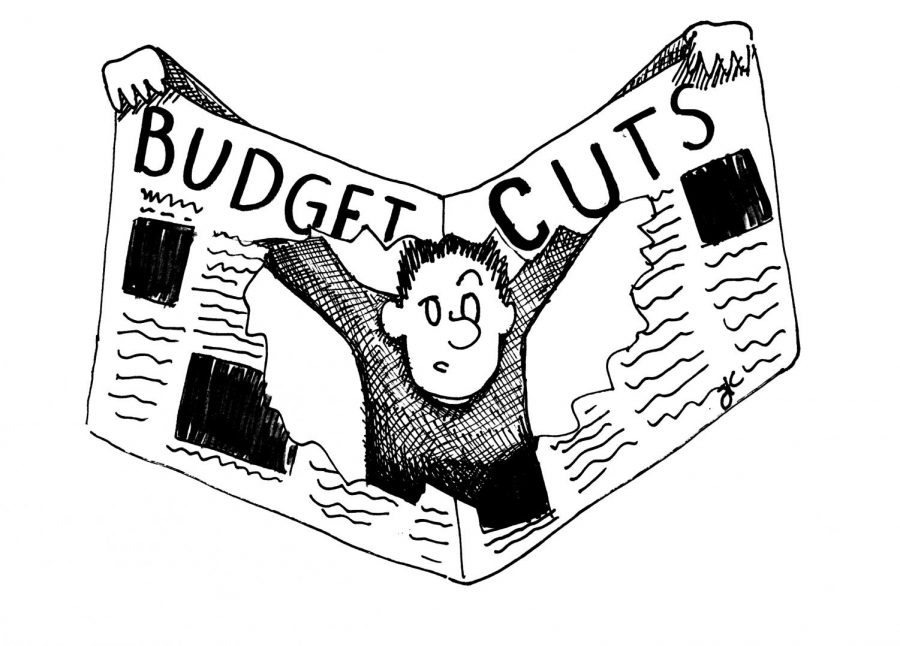EDITORIAL: UofL’s journalism death penalty is a warning to Kentucky student pubs
September 20, 2017
The Issue: The University of Louisville is ending funding to its student newspaper. This should be seen as being part of a larger issue of concerns faced by student publications across Kentucky, including us at the College Heights Herald.
Our Stance: When an institution is forced to make cuts, an initial reaction is to sacrifice entities that are most critical of it. Although balancing the budget is crucial to the overall success of the institution, student publications, especially ones that generate their own revenue through advertisements, should be given the tools essential to success.
The University of Louisville was recently informed that, due to the university’s $48-million dollar budget shortfall, the school would cease funding its student newspaper, The Louisville Cardinal, which would take effect by the end of the 2018 spring semester.
Up to this point, The Louisville Cardinal received funding for advertising directly from the university. This differs from the Herald’s business model which is to have a separate advertising team comprised of students and an advisor who seek out advertising opportunities themselves.
Another stark contrast between WKU’s journalism program and U of L’s is that the journalism program at U of L is non-existent. Therefore, cutting funding to a student publication at that institution is essentially the same as eliminating an entire major.
The University of Louisville is not the only Kentucky public institution that has been negatively affected by budget cuts. Even the College Heights Herald, which is currently a finalist for a national Pacemaker award from the Associated Collegiate Press, will feel the strain of financial cutbacks due to our university’s current carry forward policy.
Under this policy, programs with leftover money have to use those funds to cover shortfalls in the university’s central budget. After the budget is balanced, the funds that remain are distributed back to each program proportionally to what they gave up.
Unfortunately for WKU, the current budget deficit sits between $11 million and $15 million. This ends up hurting revenue-dependent programs, such as the Herald, which generate money independently of the university through advertisements. For the record, the Herald is entirely funded through advertising revenue.
Not all programs in this institution are facing such drastic cuts. WKU recently spent up to $900,000 on third party agents who recruit international students to bolster enrollment. One company in particular, Edezell, operates with little to no oversight from the university.
The issue here is Edezell has not proven to be as effective in recruiting international students as it should be. According to Jim Cummings, WKU’s chief financial officer, only “ … a small percentage of international students come solely through agents.”
To be fair, Edezell only gets paid if they are successful in recruiting these students, as they take a share of the incoming student’s tuition money. However, since the university’s biggest marketing tool in recruiting these students is still “word-of-mouth,” there is tuition money being taken off the table that could be going to benefit WKU’s main operating budget.
Another area of the university that could more easily withstand budget cuts, rather than student publications, is administrative salary.
Gordon Emslie, previously the provost and vice president of Academic Affairs for WKU, recently returned to his duties as a professor of physics and astronomy. His salary, $231,468 as provost, was only reduced to $208,321 despite a complete change in position.
These are just a few of the areas that warrant some form of cost reduction for the university before an independently-run, revenue-generating student newspaper.
It is still unclear, given Governor Matt Bevin’s clear bias towards engineering majors, what the future will hold for student publication funding throughout Kentucky over the next few years.
An independent, student publication is essential to training the next generation of journalists that will go on to tell stories all across the world.
It should be given the tools necessary for success.
Correction: The Kentucky Kernel receives no general fund support (from tuition or state appropriation dollars) from the University of Kentucky, according to UK spokesman Jay Blanton. The Herald originally stated UK had cut funding from the Kernel, this was incorrect. The Herald regrets the error.
























